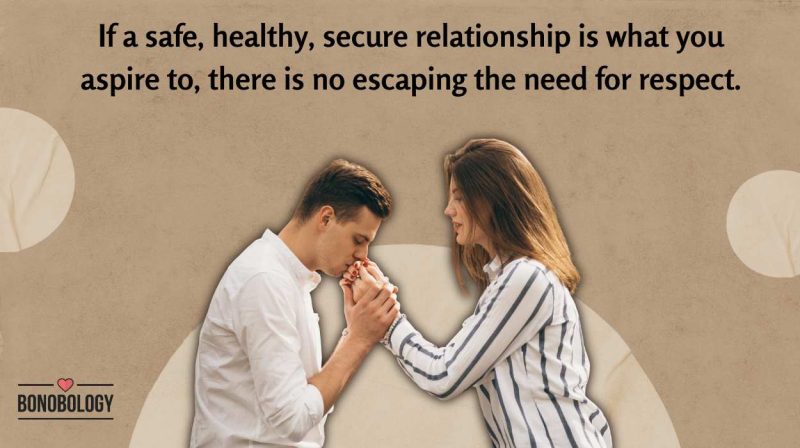The Art of Dating: How to Find Your True Love


Understanding Yourself Before Dating
Self-awareness and self-reflection
Understanding oneself is crucial prior to entering the world of dating. Self-awareness involves knowing one’s strengths, weaknesses, desires, and boundaries. By engaging in self-reflection, individuals can gain insight into their emotional responses, communication styles, and past relationship patterns. This introspective process enables a person to approach dating with a deeper understanding of themselves.
Identifying your values and priorities
Before embarking on the dating journey, it is essential to identify personal values and priorities. These could include traits such as honesty, loyalty, ambition, or a sense of humor. By determining what values are important, individuals can better assess compatibility with potential partners. Clarifying priorities, whether it’s career advancement, family, or personal growth, helps individuals stay true to themselves while seeking a compatible partner.

Building a Strong Foundation for Relationships
Effective communication skills
Understanding oneself is imperative before embarking on the dating journey. It involves recognizing personal strengths, weaknesses, desires, and boundaries. By engaging in self-reflection, individuals gain valuable insights into their emotional responses, communication styles, and past relationship dynamics. This introspective process allows a person to approach dating with a deeper understanding of themselves.
Developing trust and intimacy
Identifying personal values and priorities is essential prior to delving into the realm of dating. This includes determining traits such as honesty, loyalty, ambition, and humor that hold significance. By elucidating one’s core values, individuals can assess compatibility with potential partners more effectively. Furthermore, clarifying priorities, whether they pertain to career advancement, family, or personal growth, helps individuals remain authentic to themselves while searching for a like-minded partner.

Building a Strong Foundation for Relationships
Effective communication skills
Recognizing one’s personal strengths, weaknesses, desires, and boundaries is crucial before entering the dating world. Through self-reflection, individuals gain insights into their emotional responses, communication styles, and past relationship dynamics. This introspective journey equips people with a deeper understanding of themselves for more meaningful connections.
Developing trust and intimacy
Prior to diving into dating, it is vital to identify personal values and priorities. This involves pinpointing qualities like honesty, loyalty, ambition, and humor that are important. By clarifying core values, individuals can evaluate compatibility with potential partners effectively. Additionally, defining priorities, whether related to career, family, or personal growth, helps in staying true to oneself while seeking a partner who shares similar outlooks.
Navigating the Dating Scene
Where to meet potential partners
Exploring various social settings, such as hobbies, classes, or events, provides opportunities to meet potential partners with shared interests. Building connections in familiar environments can lay the groundwork for organic relationships based on commonalities and mutual enjoyment.
Online dating platforms and apps
Virtual platforms offer a convenient way to connect with a diverse range of people based on preferences and compatibility. Engaging with online dating allows individuals to explore a broader pool of potential partners while navigating conversations and establishing connections at their own pace.

Recognizing Signs of a Healthy Relationship
Mutual respect and support
Individuals must prioritize mutual respect and support in a healthy relationship. This entails valuing each other’s opinions, boundaries, and emotions while offering encouragement and assistance. By fostering a foundation of respect and support, partners can establish a safe and nurturing environment for personal growth and relationship development.
Conflict resolution and compromise
In a healthy relationship, effective conflict resolution and compromise are essential skills. Addressing disagreements with open communication, active listening, and empathy allows partners to find mutually beneficial solutions. Embracing compromise, where each person gives and takes, promotes understanding, cooperation, and harmony within the relationship.

Red Flags to Watch Out for While Dating
Identifying toxic behaviors
When dating, it is crucial to be vigilant for signs of toxic behaviors in a potential partner. Behaviors such as manipulation, possessiveness, jealousy, or disrespect can indicate a toxic relationship. Recognizing these red flags early on can help individuals make informed decisions about whether to continue the relationship or address these issues with their partner.
Setting boundaries in relationships
Setting and respecting boundaries is vital in any healthy relationship. Without clear boundaries, individuals may feel overwhelmed, disrespected, or taken advantage of. Communicating boundaries assertively and understanding each other’s limits can foster mutual respect and trust. By establishing healthy boundaries from the beginning, partners can navigate their relationship with honesty and compassion.
:max_bytes(150000):strip_icc()/VWH-ZoeHansen-HowtoBuildIntimacy-Standard-1df2632b6c19411b9d82ea7820ad5d13.jpg)
Creating Meaningful Connections
Building emotional intimacy
Building emotional intimacy in a relationship involves open and honest communication about feelings, fears, and desires. Sharing vulnerabilities and deepening understanding of each other’s emotions creates a strong bond. By actively listening, showing empathy, and being supportive, partners can foster a deeper connection that enhances trust and closeness.
Expressing affection and appreciation
Expressing affection and appreciation towards your partner is vital for nurturing a healthy relationship. Simple gestures like compliments, hugs, or small surprises can reaffirm love and strengthen the emotional bond. Showing gratitude and acknowledging each other’s efforts helps create a positive and loving atmosphere in the relationship.

Overcoming Dating Challenges
Dealing with rejection
Dealing with rejection is an inevitable part of the dating process. It’s essential to remember that rejection is not a reflection of one’s worth as a person. Instead, viewing rejection as a redirection towards finding a more compatible partner can be empowering. It’s important to maintain self-confidence and resilience in the face of rejection, understanding that it is a natural aspect of the dating journey.
Managing dating anxiety and insecurities
Managing dating anxiety and insecurities involves self-reflection and self-care. It’s crucial to address underlying insecurities by building self-esteem and recognizing one’s own value. Practicing mindfulness and relaxation techniques can help alleviate anxiety and promote a sense of calmness during dating experiences. Openly communicating with a partner about fears and insecurities can also foster understanding and strengthen the relationship.

Long-Term Relationship Building
Maintaining passion and connection
For individuals looking to build a long-term relationship, maintaining passion and connection is vital. It’s essential for both partners to prioritize shared activities and intimate moments that strengthen their bond. Regular communication about desires, needs, and goals can help keep the passion alive. By actively listening to each other and being attentive to emotional cues, partners can nurture a strong connection that sustains the relationship over time.
Growing together as partners
In a long-term relationship, growth and development as partners are continuous processes. It’s important for individuals to support each other’s personal and professional aspirations, encouraging individual growth while also growing together as a couple. Respecting each other’s opinions, adapting to changing circumstances, and celebrating achievements as a team are fundamental in fostering a sense of unity and solidarity in the relationship.

Long-Term Relationship Building
Maintaining passion and connection
When building a long-term relationship, prioritizing shared activities and intimate moments to strengthen the bond is crucial. Regular communication about desires, needs, and goals helps keep the passion alive. By actively listening and being attentive to emotional cues, partners can nurture a strong connection that sustains the relationship over time.
Growing together as partners
In a long-term relationship, continuous growth and development as partners are essential. Supporting each other’s personal and professional aspirations, encouraging individual growth, and growing together as a couple are vital. Respecting opinions, adapting to changes, and celebrating achievements as a team foster unity and solidarity in the relationship.




